
How to handle orthodontic “emergencies”
You may be unsure about what would constitute an orthodontic emergency, especially in the heat of the moment. While it’s helpful to have a plan in place in the event of an actual emergency, quite a few minor issues can be remedied from the comfort of your own home. These home remedies might not always be able to eliminate all the pain, discomfort, or irritation you’re experiencing, but they can be very efficient at lessening symptoms until we can see you in our office.
Below you’ll find a list of the most common minor “emergencies” braces patients are likely to counter. Keep reading for more information about them, including what you can do if they happen to you!
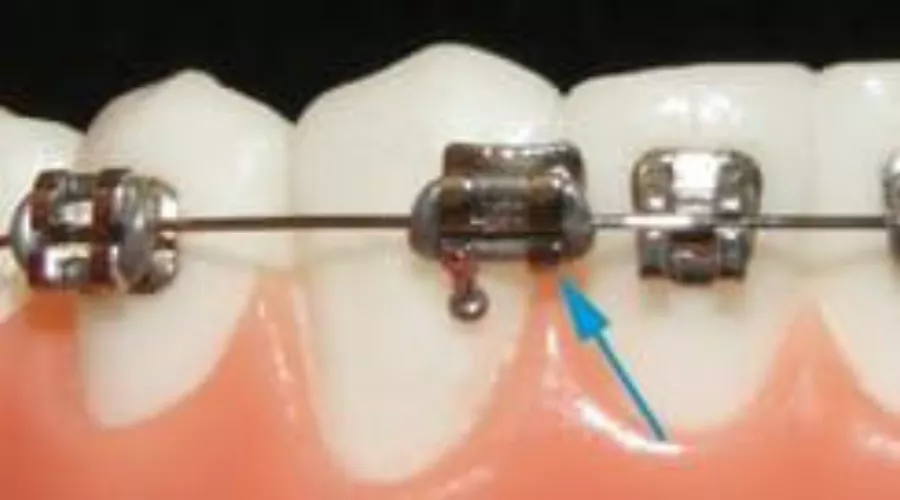
Loose or Broken Braces Brackets
Loosened brackets, or brackets detaching from your teeth, can happen – and neither are serious emergencies. This can result from eating hard/sticky foods, playing with the brackets, or bumping into something with your braces.
If a bracket comes loose or breaks, leave it in place, covering it with wax if needed for comfort. If the bracket breaks off entirely, just remove it and leave it alone. Your braces will still work properly without it until your orthodontist can affix a new one. Do not connect any elastics to it. If this begins to irritate the inside of your mouth, you can cover that part with orthodontic wax. If a piece has actually broken off, please place it in a bag and bring it with you to your appointment.
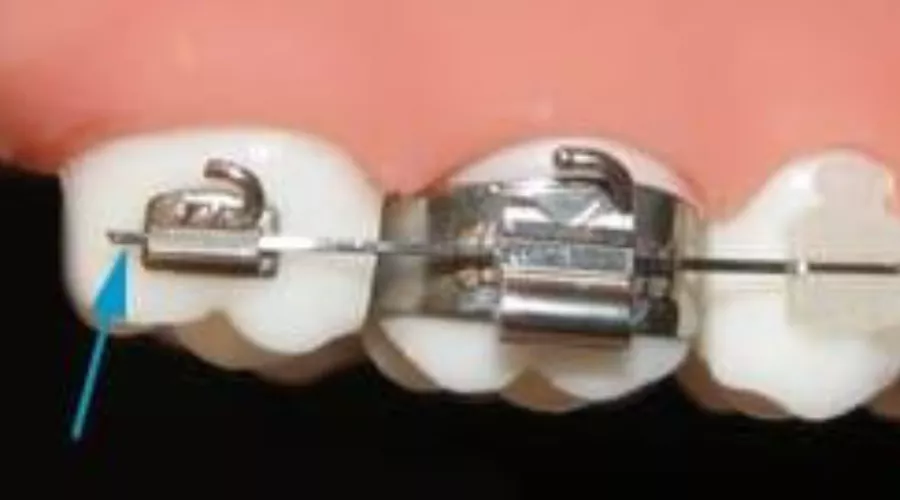
Wire Poking Cheeks or Gums
If the ends of your arch wires are poking out and causing discomfort, there are several ways to fix the issue.
Push the wire back into the molar tube using the disinfected eraser end of a pencil or a clean cotton swab.
Place a ball of wax on the end of the wire to protect your gums.
As a last resort, trim the wire using clean, disinfected nail clippers. Use rubbing alcohol to clean the clippers, and then trim the wire back to a comfortable length. You may need a mirror or a family member to assist you! Still need help, call our Emergency Hotline 707-548-6247 and a clinician will Facetime you.
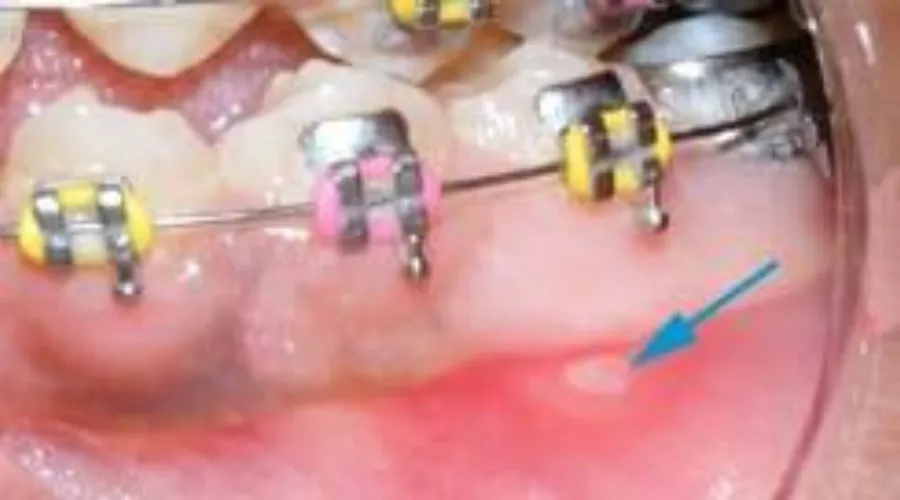
Ulcers or Sores Inside Your Mouth
Sometimes your gums or mouth may be irritated by contact with your braces; in certain cases, this irritation causes small sores or ulcers. While they can be uncomfortable, they are normal and will go away quickly.
Avoid touching them with your fingers. Cover the irritating bracket or wire with wax, and take Tylenol or Advil if you feel pain. Another option is to rinse with a warm saltwater mouthwash. Dissolve one teaspoonful of salt in 8 ounces of warm water, and rinse your mouth vigorously. They will fade quickly as your mouth heals.

Braces Wire Slipped Out Completely
In some instances, the wire may have slipped out completely from the back tooth. If this happens, try and fit it back into the brace with your fingers or with clean tweezers. If you can’t fit it back in, you can also clip it back with clean nail clippers and remove the loose piece (the wire is still fixed in place by the other brackets and so treatment won’t be affected).
If this is unsuccessful, you can call our emergency hotline at 707-548-6247 and a clinician can inspect the wire.
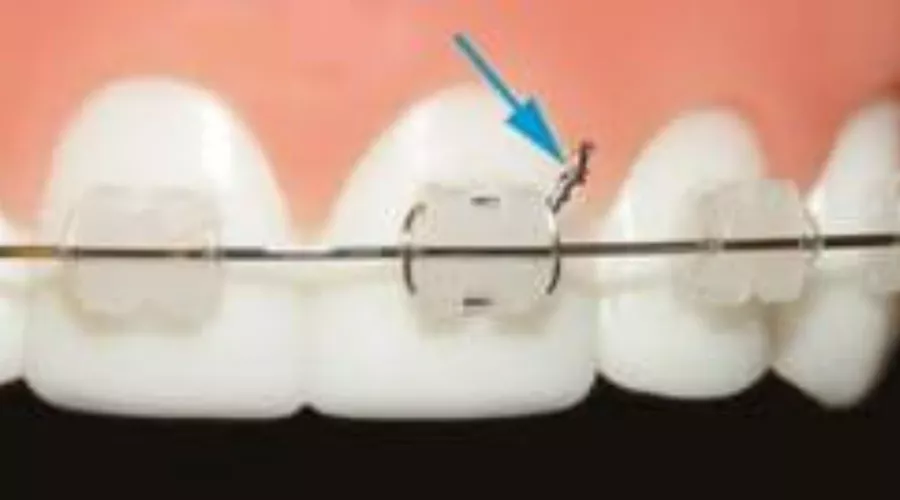
Poking Steel Tie
If your braces use steel ligatures to connect wires and brackets, these sometimes can unwind and poke your lips, gums, or other parts of your mouth. If this happens, try to push back into place with the clean eraser end of a pencil. Or use wax to cover the end of the poking wire.
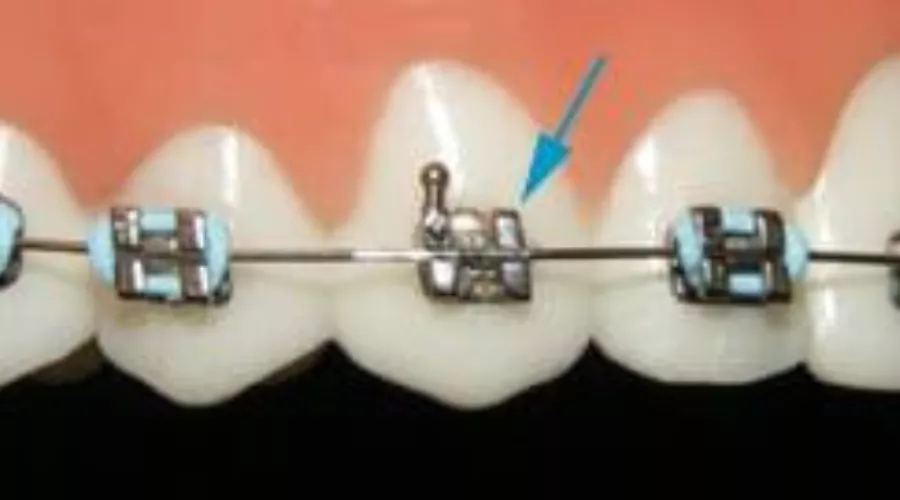
Lost Rubber Band
We often use rubber elastic bands over the brackets to help keep the wire in place – but if one comes off, it’s okay, your treatment will not be interrupted! The brackets are crimped around the wire, so the rubber bands act as an added precaution. If the wire is getting loose, push back in place with a clean tweezer.
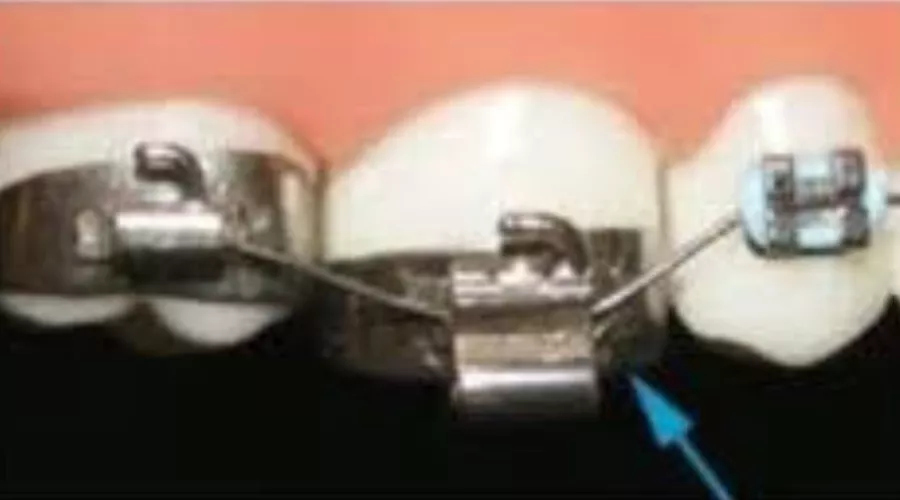
Loose Appliance/Band
Bands or fixed/banded appliances can come loose with improper diet (ie sticky foods). If your band or banded appliance is poking you, place wax on the part that is bothering you. It is important for you to contact our office immediately if your band or appliance comes loose so we can schedule a time to re-cement it.
Tooth Discomfort and Soreness
Sometimes you may feel pain or soreness as your teeth adjust to their new positions…this often happens at the beginning of treatment. This is normal and nothing to worry about. General soreness in your mouth and teeth may be tender to biting pressures for three to five days. If the tenderness is severe, take whatever you normally take for headache or similar pain. Another option is rinsing your mouth with a warm saltwater mouthwash. Dissolve one teaspoonful of salt in 8 ounces of warm water, and rinse your mouth vigorously. If pain persists, contact us for an evaluation.
The lips, cheeks and tongue may also become irritated for one to two weeks as they toughen and become accustomed to the surface of the braces. You can put wax on the braces to lessen this. We will show you how to use the wax when we give you your kit at your appointment when you have your appliance placed.
Tooth pain or loose teeth
It may sound scary, but your teeth may loosen slightly during orthodontic treatment! It’s all part of the process. That said, this type of movement can sometimes cause a bit of tenderness, especially right after your braces are put on, or following an adjustment appointment. Salt water rinses are a tried and true home remedy that can really help relieve soreness. Simply mix one teaspoon of salt in 8 ounces of warm water, then swish it around your mouth for about 30 seconds.
Trauma to the face/teeth/jaw
Trauma to the face, teeth or jaws, such as in an accident or fall, is serious and requires follow-up with a physician, as well as calls to your dentist and Dr Lynskey. The same is true of any severe pain or swelling around your teeth, jaw, or mouth, since this can be a sign of infection or disease. Fortunately, these types of emergencies tend to be few and far between!
What to do next
The goal of managing at-home remedies is to get you out of discomfort ASAP until you can schedule an appointment with our office. After alleviating your discomfort, it is very important that you still call our office to schedule a time to repair the problem. Allowing your braces/wires or appliances to remain damaged for an extended period of time may result in disruptions in your treatment. It is also important to note that taking proper care of your appliance and wearing a mouthguard during sports and physical activities is the best possible way to prevent minor (or major) orthodontic emergencies.
For emergencies occurring during business hours: Call Dr Lynskey’s office to schedule a repair appointment: 707-525-1180.
For after-hours urgent care, call our emergency hotline at 707-548-6247. A clinician will respond with instructions.
Unsure if you’ve got an actual emergency situation? Go to the homepage of our website and upload pictures using our smile assessment tab and we will respond on the next business day.

Meet Dr. Lynskey
Dr. Victoria Lynskey is a top orthodontist and Gold Plus Invisalign provider in Santa Rosa, CA, known for using state-of-the-art treatments and providing personal, effective, and comfortable care.
Meet your doctorWhat our patients say about us
Thank you all for giving me my pain-free life back!
Confident, practiced, and skilled professional.
This is the reason I chose her as my orthodontist, but there are many, many other things that make an experience with Dr. Lyndskey so special.
Firstly, her staff are all so pleasant and friendly. From the front desk to the ortho assistants, they all take great care to make patients comfortable, informed, and capable. My case was surgical, and given I had never even heard of this kind of thing, I was a little freaked out at first. I am a person who asks a LOT of questions and was anxious at many appointments, but every staff member who worked on me, and Dr. Lyndskey herself, were so kind and patient and made sure I was comfortable with everything happening. I felt safe and cared for the whole time.
Not only is Dr. Lyndskey extremely good at what she does, it is clear she has a passion and excitement for her work; and that is so encouraging to experience as a patient! I think she enjoys working with patients as well as figuring out their teeth. I like to say that she is some sort of wizard, because when she made adjustments to my braces I could see the change immediately.
They are upfront and transparent with their pricing, and it seems reasonable for the level of service they provide, which includes x-rays, monthly appointments, molds, and a set of retainers, etc. They offer a total price discount if you pay all at once, but they can also set you up with a reasonable payment plan.
My teeth look absolutely fantastic now, thanks to Dr. Lyndskey and her team. I highly recommend their services.
Love your smile? Share Your Experience!
We’d be grateful if you left us a review on Google or Facebook.
Your feedback helps others discover the smile they’ve been looking for!



